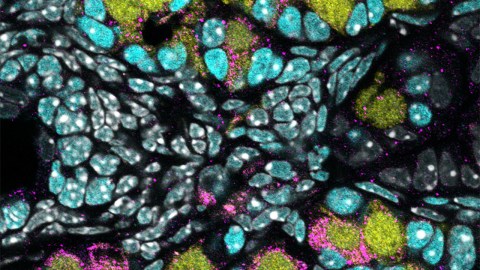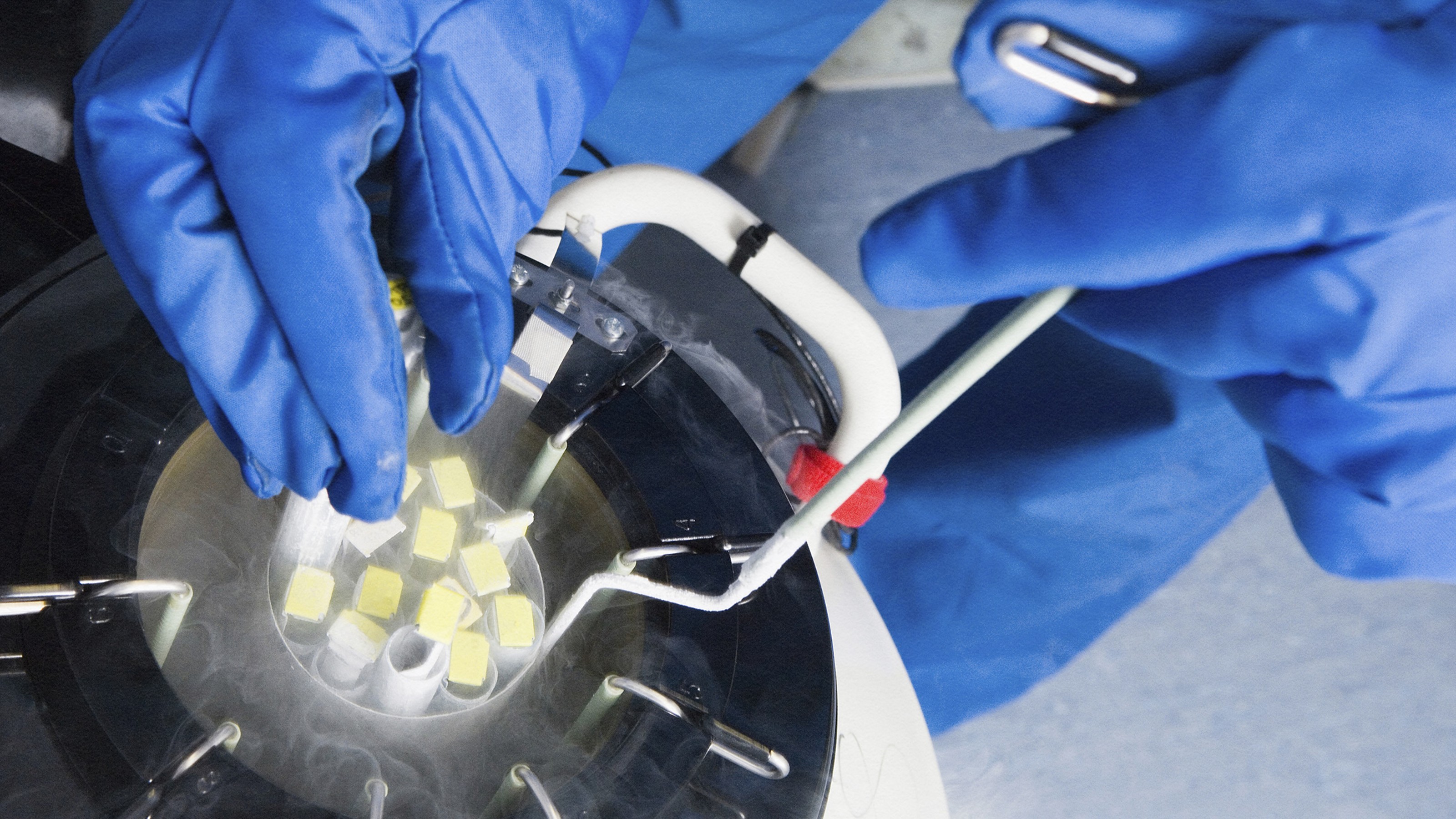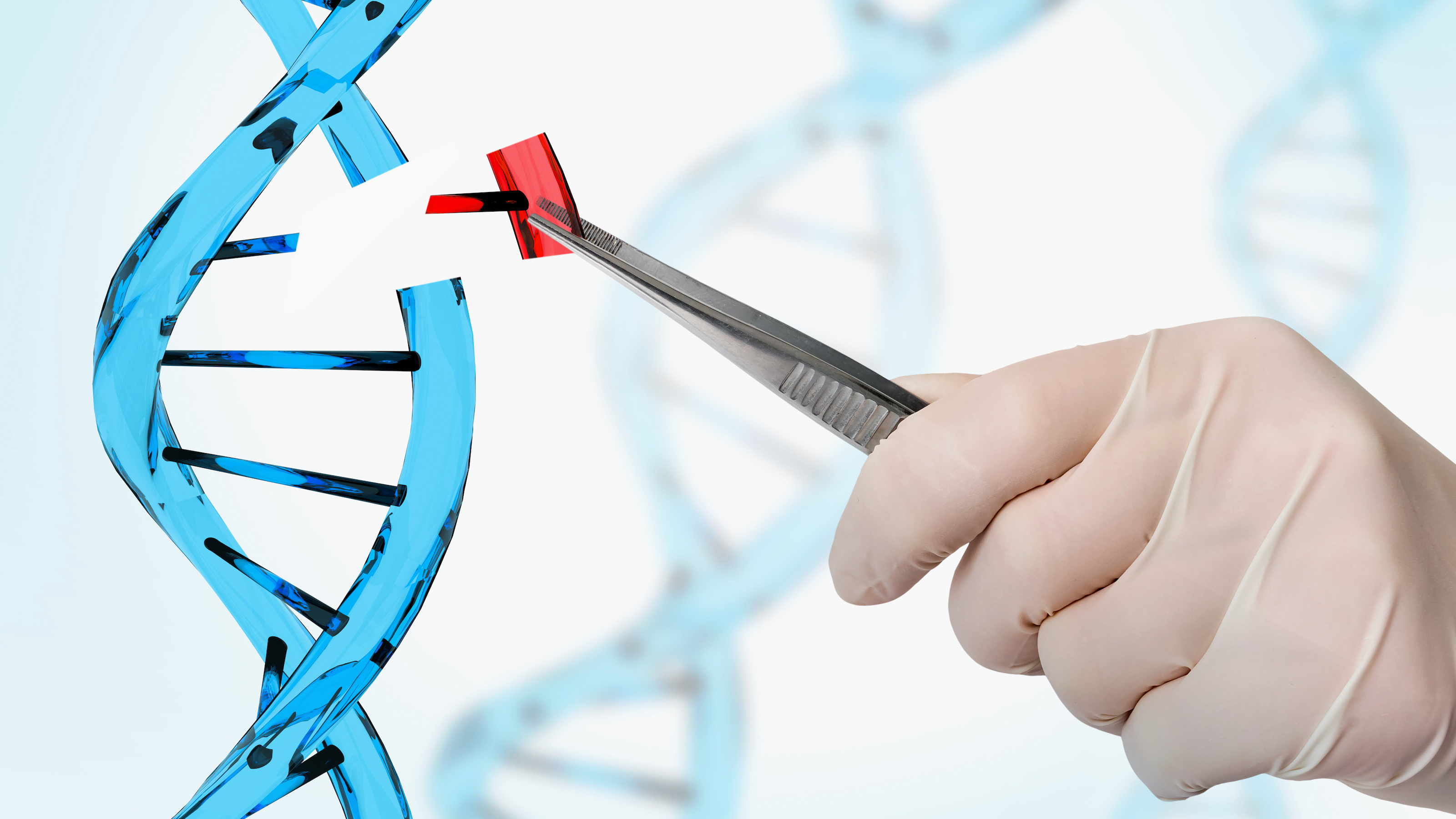Gay couples may soon be able to have their own biological kids

A false color image of the results of the study. Immature human eggs are shown in pink. (Courtesy of Saitou Lab)
- Japanese scientists have successfully created immature human egg cells using stem cells.
- The discovery builds on years of research into the uses of stem cells.
- While the prospects for new fertility treatments are promising, the ethical questions raised by the procedure will have to be answered.
Japanese scientists have changed blood cells into stem cells which were then used to create immature human egg cells. While the new eggs are too immature to be of any use, the study, published on September 20 in Science, points the way to new fertility treatments as well as ethical concerns that are unlike anything we’ve encountered before.
How did they do it?
The scientists took human blood cells and used a previously known method to transform them into human pluripotent stem cells (hPSCs). These cells can be changed into any other cell, making them extremely useful in medical research and giving them endless potential for future treatments.
While previous studies have attempted to create lab-grown human eggs from stem cells before, those attempts were all unsuccessful. The trick, it seems, was to put the new egg cells into a miniature ovary built for this task out of cells taken from mice. This allowed the scientists to succeed where others had failed.
What can we do with this?
While the eggs produced in this study are immature and incapable of doing anything, there is reason to hope that over the long run fully functioning eggs will be created. This has already been done for mice, although making that work for human cells will be a little more difficult.
Artificially created mature human egg cells could be used in a variety of fertility treatments. They could be produced for those born infertile, people who have lost their fertility due to illness, or even for gay couples who want to have a child with their own genetic makeup and not that of a donor. On a more mundane level, mature eggs could be created on demand for research purposes.
The study’s authors stated that the next step for them will be to try and produce mature egg and sperm cells that could actually be used for reproduction. It may only be a matter of time before fully functioning lab grown human gametes are a reality.
What are the ethical concerns?
This process currently allows immature eggs to be created that have the DNA of the blood cell donor. If the procedure is perfected and mature sperm and eggs can be produced, a brave new world of genetic selection may be upon us. One in which desirable DNA can be bought and sold to create gametes with desirable genetic qualities. Ronald Green, a Dartmouth bioethicist who often works on issues related to stem cells, explains one of the many strange possibilities that we may soon face:
A woman might want to have George Clooney’s baby, and his hairdresser could start selling his hair follicles online. So we suddenly could see many, many progeny of George Clooney without his consent.
In addition to the possibility of genetic theft, the ability for any person to have their cells turned into eggs which could lead to a successful birth allows for the creation of children from the cells of the recently deceased. A creepy situation that we will undoubtedly have to reckon with.
People in need of new organs might see fit to have a child created with their DNA to provide a spare kidney a few years down the road. This is already happening in the form of ethically ambiguous savior siblings and was explored in the book and film My Sister’s Keeper. Will the morality of the child’s creation be any different if the child is tailor made for the person in need of a donor rather than the old fashioned way?
We must begin asking ourselves now how we will react to these ethical questions since the science won’t slow down for us.





